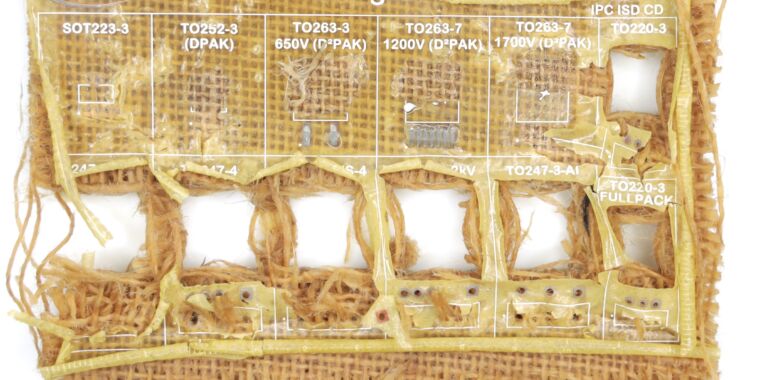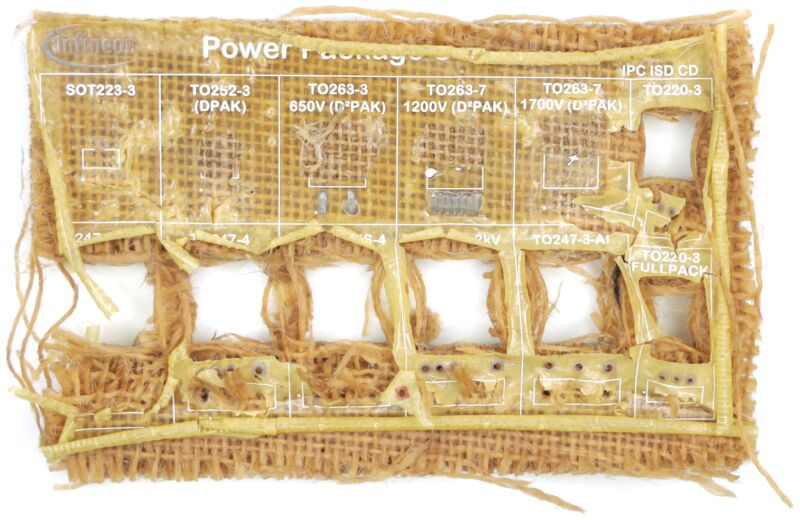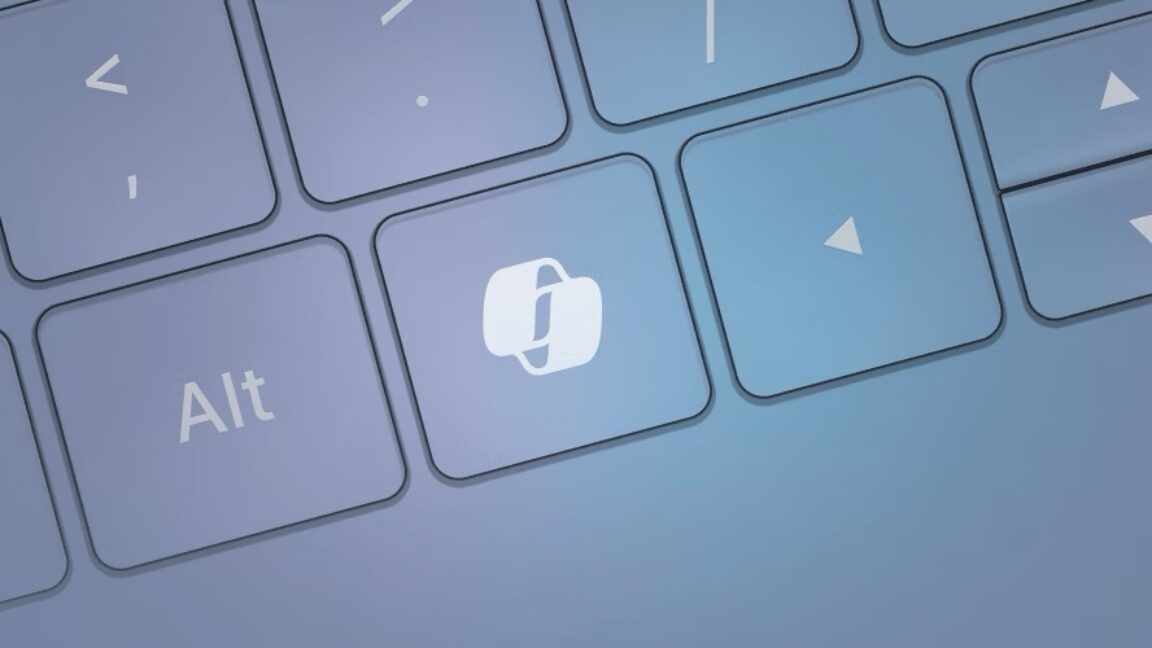

Enlarge / 30 minutes in near-boiling water, and those soldered chips come right off, leaving you with something that's non-toxic, compostable, and looking like something from your grandparent's attic. (credit: Infineon)
Right now, the destination for the circuit board inside a device you no longer need is almost certainly a gigantic shredder, and that's the best-case scenario.
Most devices that don't have resale or reuse value end up going into the shredder—if they even make it into the e-waste stream. After their batteries are (hopefully removed, the shredded boards pass through magnets, water, and incineration, to pull specific minerals and metals out of the boards. The woven fiberglass and epoxy resin the boards were made from aren't worth much after they're sliced up, so they end up as waste. That waste is put in landfills, burned, or sometimes just stockpiled.
That's why, even if it's still in its earliest stages, something like the Soluboard sounds so promising. UK-based Jiva Materials makes printed circuit boards (PCBs) from natural fibers encased in a non-toxic polymer that dissolves in hot water. That leaves behind whole components previously soldered onto the board, which should be easier to recover.

No comments:
Post a Comment